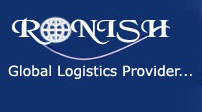Export business in Nigeria can be termed a lucrative business and this is why it is quite compelling to consider exporting from Nigeria based on having the requisite knowledge and current economic parameters.
Some of the benefit of export business in Nigeria are as follows but this is not exhaustive :
- Increased sales and profit
- Gain global market shares
- Create potential for business expansion
- Increase life cycle of product
- Reduces risk and balance growth
- Enjoys economics of scale
- Diversification
- Gain new knowledge and experience
Based on the above benefits of export business in Nigeria, you will trigger off the process by first registering with the Nigeria Export Promotion Council (NEPC) as an exporter via e-registration platform as you will need the exporter certificate for export. In addition, it will make you to be eligible for NEPC benefits.
The needed registration documents for a limited liability company are as follows:
- Certificate of Incorporation (Issued by the Corporate Affairs Commission)
- Certified True Copy of Memorandum and Article of Association
- Current Certified True Copy of Form CAC 1.1 – “Section C” (Particulars of Directors). This was formally know as Form C 07 or Form CAC 7.
Upon having the exporter certificate, carry out research in the following areas in order to minimize your risk and optimize gain. The research area should include trade statistics and trends, trade policy, regulatory framework, business environment, business culture, distribution channels, trade logistics and supply chain, and risk assessment. The essence of this is to have a better understanding of the market for completeness, accuracy, and validity.
Once the product for export has been ascertained, export business in Nigeria can be moved further by processing the Nigeria Export Proceed Form(Form NXP) through an authorized dealer bank.
You shall open an export domiciliary account with any bank in Nigeria in which you registered the Form NXP in the first instance. This is a control that will ensure that export proceeds are repatriated and credited to your domiciliary account within 180 days from the Bill Lading date. Payment methods could be Letter of Credit(LC), Bills for Collection, Advance payment, and/or other approved international mode of payment acceptable for exports from Nigeria.
Upon completion of the Form NXP, a Request For Information(RFI) shall be collected from the Pre-shipment Inspection Agent. This is to enable the inspection agent to coordinate the date and time for the inspection. Please, note that the following are exempted from inspection:
SCHEDULE ‘A’ EXPORT GOODS EXEMPT FROM INSPECTION
- Personal effects
- Used Motor vehiclle
- Perishables ie day old chicks, human eyes, human remains
- Vaccines, Yeast
- Objects of Art
- Explosives
- Pyrotechnic products and Arms
- Ammunitions
- Weapons
- Implements of war
- Live animals
- Household and other non-commercial products including : gift and personal effects, trade sample / printed business matters, machinery and equipment for repairs abroad, machinery for the execution of specific contract, re-export, return of empty containers, transshipment supplies to diplomatic / consular missions, and supplies to UN for their own needs.
SCHEDULE ‘B’ PROHIBITED EXPORT
- Raw hides and skin
- Timber (rough and saw)
- Scrap metals
- Unprocessed rubber latex and rubber lump
Please, avoid trading on sanctioned / prohibited products because of its unimaginable adverse consequences to your export business in Nigeria.
Once the product has been inspected by the Pre-shipment Inspection Agent along side with all relevant government Agencies and all parties are satisfied, a Clean Certificate of Inspection (CCI) will be issued.
Upon issuance of the CCI, the product for export is now ready to be loaded on board the vessel based on the agreed Incoterms which defines all obligations of buyer and seller within the logistics and supply chain.
Export business in Nigeria will require the following documentations:
- Bill of Lading (BL) / Air Way Bill (AWB)
- Packing list
- Certificate of Origin
- Commercial invoice
- Single Goods Declaration (SGD)
- Nigeria Export Proceed (NXP)
- Clean Certificate of Inspection (CCI)
- Certificate of weight and quality
- Road transport waybill
In addition, export business in Nigeria will require other documentations depending on the regulatory body that is involved. This will include the following :
- Phytosanitary certifications for agricultural commodities (Issued by NAQS)
- Health certificate for processed and semi-processed food items (Issued by NAFDAC)
- International veterinary certificate for animal and animal products (Issued by DVPCS)
- Fumigation certificate for agricultural commodities (Issued by FPIS, Part of FMITI)
Finally, export business in Nigeria is equally affected by some important components of an international export contract which includes the following:
- Terms of trade (Incoterms)
- Mode of payment
- Mode of delivery
- Trade enforcement organs
- Agreed dispute resolutions mechanism (Which laws applies in case of disputes)
- Presiding court
For all your requirements in respect of export business in Nigeria, contact us. In addition, we can also assist you with local clearance from the ports, shipping operations, logistics, and supply chain needs.
